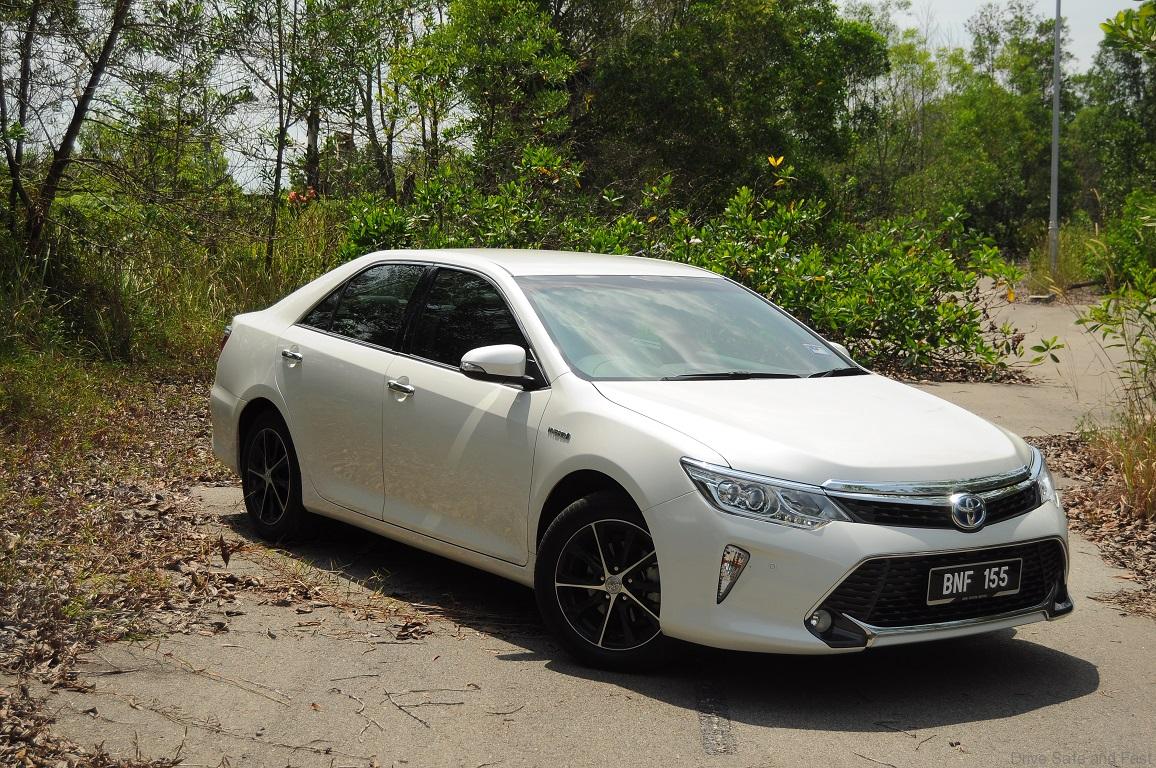Earlier this year, UMW Toyota was hit by some hard news. Honda had taken the lead as the number 1 non-national car brand. Being in the number 2 spot for so long, Honda had to work hard to improve the value of their products- and in general they were offering better specifications for the money. Taking advantage of the generational change, Honda saw the opportunity to step up their features- making their products feel as if they were in a class above.
Being entirely blindsided, UMW Toyota got to work on figuring out just what had happened- where did they go wrong? And it became clear that the Camry of this generation wasn’t achieving the figures that they had hoped for. While the Vios and the Corolla had even fights with their Japanese rivals, the Camry was losing a lot of ground to other offerings on the market. Considering that the Camry was considered the king of the D-Segment at one point, this was a hard blow for UMW Toyota.
With the facelift for the model fast approaching, UMW Toyota got to work on revising their specifications for the Camry to make it a more appealing product. It required at improvement on nearly every aspect of the car, addressing everything from the interior to the options list, and even making changes to the suspension as well. Two new powertrains replaced the older ones- and here we have the Hybrid variant.
Toyota has strong roots in hybrid technology, and we’ve been waiting a long time for the Camry Hybrid to be added to our local lineup. The fossil fuel portion of the powertrain is a 2.5-litre powerplant, detuned for efficiency purposes. It produces 160 PS and 213 Nm at 4,500 rpm on it’s own steam. The additional electric motor provides 105 PS and 270 Nm from idle, which gives the Camry Hybrid an edge in low end torque. In total, the system kicks out an impressive 205 PS through a continuously variable transmission, making it the most powerful of the Japanese models. As you’d expect from a hybrid, there is an electric-only mode used for low speed cruising if the battery has enough charge.
The interior has received subtle touches in order to improve the finish and feel. The obnoxiously fake wood paneling of the pre-facelift model is replaced with a more subdued, darker tone. The entertainment system gets a nice revamp, although the aftermarket system that the 2.0 model is equipped with seems to be a little slicker and snazzier in certain respects.
In place of the standard tachometer, the Camry Hybrid gets a Charge-Eco-Power gauge that’s more useful for drivers who want to conserve fuel effectively. It’s such a stark difference from the pre-facelift model that it’s hard to believe it’s the same car underneath. Even things like the NVH (noise, vibration, and harshness) have been addressed and improved for better occupant comfort.
But what’s the Camry Hybrid like as a package? On the whole, it definitely feels a lot better- regardless of whether you’re a driver or a passenger. The hybrid powertrain works seamlessly, allowing you to start off from a stop with barely a whisper. When the engine fires up to assist the motor, it does so in a gentle manner- not disruptive or invasive in the slightest. Getting up to highway speeds is easy and effortless (although engine delay and lag begins to present itself at higher speeds).
The suspension is one area that has been improved by a large margin. When this generation of Camry was first made available to us, it wallowed a bit on the road and suffered from a severe case of under-damping. The engineers have looked at the spring rates and tweaked them for better body control, and while the Camry may be a little stiffer now, the change is definitely much appreciated. The steering, while numb, offers better precision and control. There’s stability in high speed bends and (some measure of) agility in sharper corners. It’s a truly impressive effort on the part of Toyota’s engineers.
Does it warrant a serious consideration when compared to it’s rivals? It honestly depends on what you want. While the driving dynamics are improved, they don’t quite match the surprising agility of the Honda Accord, or the all-round stability of the Mazda 6. What it does have going for it is a good balance between comfort and handling- and a powertrain that can claim to be the most elegant among the three. It may not feel like 205 PS, but pedaling around town with it for a good weekend and having to go back to a conventional powertrain made me appreciate the quiet virtues of a hybrid system.












